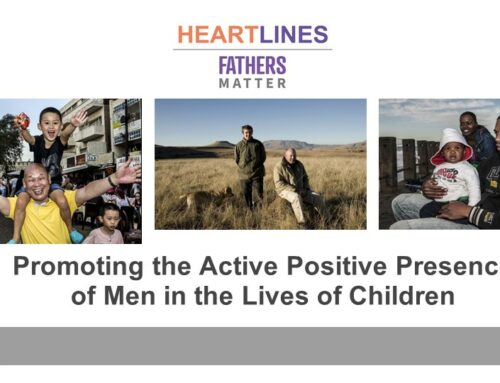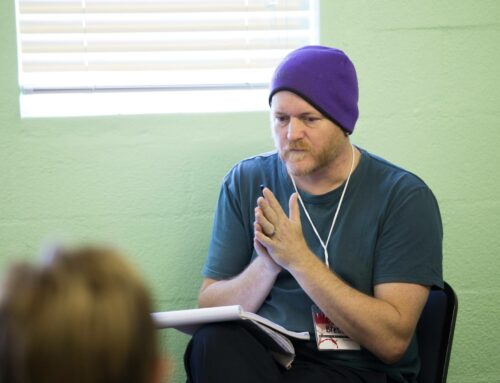When this topic first came up, I chose not to get involved because I knew the controversy it would cause. People on all sides are generally exceptionally sensitive when it come to the topic of race. We can never just talk about our differences without an argument ensuing. Someone always has to overact out of offense and someone else will always have to pay by taking the blame. The conversation is almost not worth having because no one is ever willing to just listen and learn. Over and above that, I never considered myself a contender in the game. I was brought up differently, so I thought I had no say in the matter, but after reading the first post, I figured I could give it a shot.
I am a young black South African female who happened to be raised within the realms of the very popular western culture. Our parents wanted us to live and learn from the world without the restrictions and/or limitations of tradition. They wanted us to become who we were destined to be and not what culture dictated us to be. I was confused – but then again you would be too if you were expected to “hate” the enemy when they were the only friends you knew. While my sibling comfortably embraced some of our culture (speaking our mother tongue and befriending people of the same race), I chose to comfortably adopt the culture I was brought up in (white friends and speaking only English). It was tough because I never really knew where I fit in – when you have your feet in two different camps, there is always going to be a conflict of interest, but I’ll save you the sop story (and besides you’re already judging me)….
From my experience, I have realised that the question really shouldn’t be “What I Think A Specific Race Should Know” but rather “What I Think Everyone Should Know”. We’re all different and are influenced by our varying backgrounds, and it’s easy to just get angry and point fingers but it’s beneficial to learn and understand. Unfortunately, not everyone is going to know and/or relate to your past, your feelings or your point of view, so it’s your job to educate them. Instead of playing the oversensitive he said she said offense blame game, why not let curiosity be a teacher.
I have learnt through babysitting that kids will ask questions in order to gain understanding. Their intention is never to offend or hurt, but when they see something out of the ordinary; something they deem to be different, they want to know why and are brave enough to find out. And the answer you give them never changes their outlook or opinion of you. They don’t mock or tease you about it (well for the most part anyway), in fact, more often than not they leave having learnt something new and they respect you for it. You teach them what’s right and wrong and they will just go with it.
And so it should be with us adults, if someone is offending you or being uberly inquisitive, instead of pulling the race card or getting overly sensitive on the matter, why not respond by explaining why you don’t like it or why it makes you feel a specific way. There’s no point in getting angry and holding grudges over it – it helps no one and only creates more division among us. How will anyone ever know that something hurts you if you don’t explain it to them? There is nothing worse than having to walk on eggshells around a topic because we’re too scared of what the reaction might be… That’s just stupid!
We’ve got to put our fists down (stop being defensive) and have an open discussion about our differences. It’s time we learnt a little bit about each other in a safe non-threatening environment. Yes! Let’s discuss what my white friends should know and why, then turn the tables and discuss what my black, coloured, asian and indian friends should know and why. Let’s make it a group effort instead of a “them vs us” scenario; let’s get to know each other (what makes one person tick, may be a big fat joke for another – we’re ALL different like that), because the more you know the better you understand; and the better you understand, the more comfortable the interactions.
We won’t always get it right, but that’s why it’s so important to keep the lines of communication open, so we can continually learn along the way. It’s a never ending life lesson and we’ve got to see it as a journey, never a destination. It’s not a free ticket to be rude, judgmental and/or stereotypical… (try to see the bigger picture here) it’s an opportunity to gain knowledge and build relationship through understanding…
[For the next post, this time by Tasha Melissa Govender, click here]







[…] [For the next amazing post in this series by Tshego Motiang, click here] […]
[…] Tshego Motiang shares some incredible insights about the need for open communication […]
Tshego, I may not know you, but you are awesome. I entirely agree.
If we always have the view of seeing a select grouping as the other, how would we ever find a common ground.
If anything differences should be celebrated and embrace, not met with unkindness.
Adore this piece and your understanding of our world- conversations need to be had and lessons must be learnt.
Hey Tshego, I really enjoyed your post, and your mature, open attitude to difficult topics. I totally agree that talking to someone who has offended you could be really helpful – especially if they don’t realise they’ve done so. And kind, non-defensive, open communication is alway the best solution! You sound like you have an awesome way of seeing the world and others.
I have two questions that are more for general debate (if B doesn’t mind my super-long comment:) – perhaps others can chime in too.
1) Is it the job of black people to ‘educate’ other people about how to treat them? Is it your responsibility? Wouldn’t it be tiring/ difficult/ embarrassing to have to point out every time someone offends you? I know if someone says something offensive to me I’m often too paralysed with shock/ hurt to react… and then the moment is over and the person has left but I’m still left feeling horrible.
Shouldn’t white people (or whoever is being racist/ offensive) make the effort to become more aware and sensitive themselves? I’m just concerned that saying it’s black people’s “job” to educate others puts the ball too much in the court of those who are hurt by insensitive remarks or behaviour, and doesn’t keep the ‘offender’ (for want of a better word) accountable.
2) Are there perhaps some black people who are not empowered to speak up against racism? (As there are some women in patriarchal societies who are not empowered to speak up against sexism.) For instance, they might be scared of authority (the government, their boss etc.) or simply not have the confidence or strength to do so, for whatever reason?
You asked the rhetorical question “Why not respond?” to racism. What I’m suggesting is that these may be some of the reasons why people don’t or can’t respond – and that they shouldn’t be held accountable for that.
But if you are confident/ comfortable enough/ prepared to correct the offender or raise awareness about racial sensitivity, as these posts have been doing, I think it is very helpful.
I’m also worried that you maybe deny some people their very real anger and hurt (by saying that “there is no point in getting angry”). I know that anger can be destructive, but I also think it has its place, and has to be acknowledged before healing can begin. It can even be a helpful start to an honest conversation: “I am really angry with you – can I explain why?”
This is not at all a dismissal or repudiation of anything you’ve said – all of which is your personal story and perspective and which I totally respect – it’s more an addendum and a sidenote and a debate around your very valid thoughts.
* Of course I am not the offended person in question here and do not presume to speak on anyone’s behalf (I am white and have not experienced racism), just raising the point and presenting it for Tshego or others to comment on, as I think this is a really important conversation.
Andrea, I like the point you make in your first question/thought about whether it should or shouldn’t be a person’s job to “educate” the “offender”. From my experience, I know that I do not like feeling like I’m the only one making an effort towards understanding. It’s draining, and uncomfortable and I do think it is a good thing for others to grow in sensitivity. I don’t expect this to be a guessing game, but just a result of being more aware of differences, especially as intimacy between friends grow. I have a hard time calling a person friend who offends me without caring and wanting to learn more and take responsibility in the friendship. It often ends up feeling more like I’m teaching, rather than experience the natural mutual give and take that takes place in friendship. That being said, friendships shouldn’t be sought soley for an outlet against racism, rather, if a friendship is multi-cultural, learning about each others differences and honoring them should be a natural bi-product of the relationship.
So great, Rachel. Thank you.
Man! This is the best post on this topic so far! All of them have taught me something, but this is EXACTLY the right approach to ensure we are all just being people, and doing our best through our bumbling efforts to love and understand and have grace for one another! Thank you for this Tshego.
Epic epic post, by far the best in the series. I love your mature approach and your practical wisdom.
Well written Tshego, and Rachel, I think the onus falls on each one of us individually to make an effort to understand the ‘other’, whoever the other might be – whether is is a black person, or a white person, or an Indian person, or an old person, or a young person, or a gay person or a straight person. I know that I sometimes feel as if I am the only person in my circle trying to understand, and I sometimes get the urge to not try any longer – but then someone comes along who really needs someone to try and understand, and then I am prepared to risk getting rebuffed or whatever the reaction may be.
I know that I have heaps of friends – some of other colours – some of differing sexual orientations – some of whom I do not agree with – but I do make an effort to understand where they are coming from, and it is my prayer that they make an effort to understand me.
Thankx Shirley, good words…